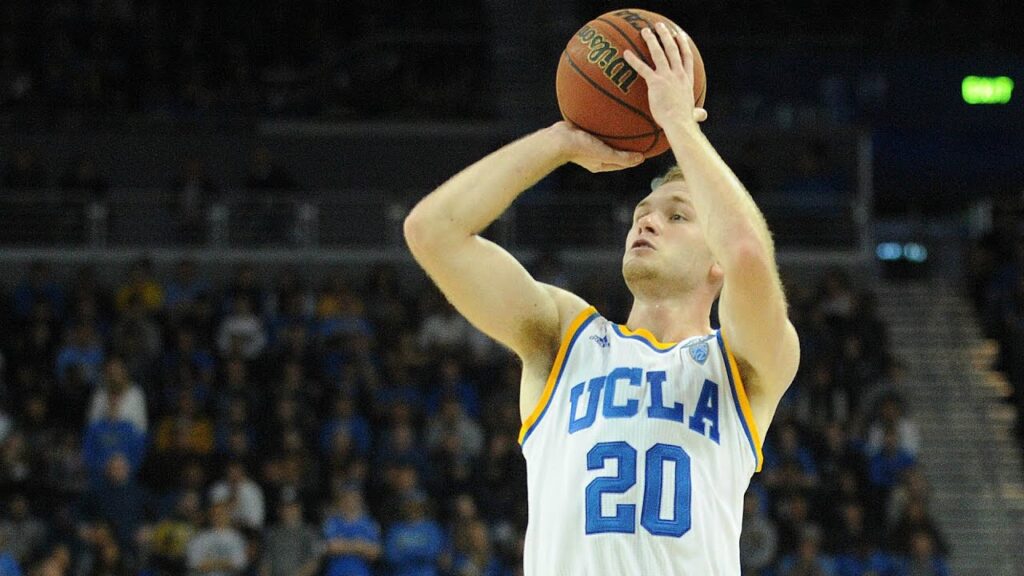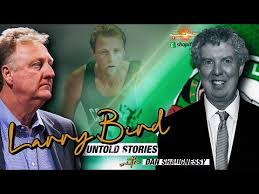UConn won the NCAA tourney in April and Boston won the NBA Finals in June but there is still 1 more basketball champion to be crowned this summer. The Basketball Tournament (aka the TBT) kicks off on July 19th with 8 regions of 8 teams playing in Butler/Cincinnati/Dayton/Houston/Lexington/Louisville/Pitt/Wichita. Each region will send 1 team to the quarterfinals, with the championship game taking place during the 1st week of August, and the winning team walking away with $1 million in prize money. HoopsHD’s Jon Teitel will spend the weeks ahead interviewing as many TBT participants as possible. We continue our coverage with Bryce Alford, who will be playing for The Enchantment after becoming the best 3-PT shooter in UCLA history.

In 2013 you were named a Parade All-American: which of your fellow honorees impressed you the most (Aaron Gordon/Zach LaVine/Andrew Wiggins/other)? Zach is still 1 of my closest friends to this day: we started at UCLA together and I still feel that he is the best player I have ever played with/against. My dad recruited Aaron out of high school and he was a stud back then (and still is!).
You were born in Indiana/raised in Albuquerque: what made you choose UCLA? Obviously, my dad being named coach there had a big impact. He had been coach at New Mexico so I originally committed to play for the Lobos, but after he took the job at UCLA I followed him there because I had always wanted to play for him. It was also an opportunity to play for a program that has the most titles and the best history in the sport.
Your father Steve was your coach and your brother Kory was your teammate for 2 years: what was the best part of having your family on your roster, and what was the not-so-best part (if any)? The not-so-best part was whenever I played bad or even just okay because some people would say that I did not deserve to play. It took time for me to mature and stop listening to the people who did not matter. The best part was having my dad at all my games, which was another reason I chose to play for him. Those family memories will be with us for a lifetime.
You made 3 Sweet 16s from 2014-2017: what is the key to winning games in March? That is the interesting part of college basketball: the best team does not always win the tourney, or even their 1st game. You must get hot at the right time and have the kind of guys who understand the importance of every single possession. The room for error becomes smaller so you need to take care of the ball and defend the best that you can.
You set school records for most 3PM in a game/season/career: what is the secret to making shots from behind the arc? There is a lot to that: years and years of muscle memory via repetition that I got by practicing my shooting every day of my life. It also comes down to opportunity because if guys like Lonzo Ball/Kyle Anderson/Aaron Holiday did not pass me the ball and if our screeners did not set picks for me then I would not have made as many as I did.
As a senior you were named 1st-team all-Pac-12: what did it mean to you to receive such an outstanding honor? That was a cool thing: I also made the all-freshman team my 1st year. It is great to look back and see the other players on that team who went on to have great pro careers (Kyle Kuzma/Lauri Markkanen/Derrick White/etc.).
Speaking of your former conference, which no longer exists: any thoughts on conference realignment? That is a weird 1 for me: I wish that I would have set a few more Pac-12 records because now they would be there forever! I understand the reasons for realignment, but I do not like it because all the rivalries/history will be somewhat diminished.
After going undrafted in 2017 you spent 2 years in the G League and then several years playing pro basketball in Europe: what is the biggest difference between basketball in the US vs. basketball overseas? It is a different style of game even from country to country. It is cool to see how the game is played/coached/officiated. There is less of an isolation game overseas and there is not a defensive 3-second call (similar to college basketball) but the basic strategy remains the same: you need to put the ball in the basket and stop your opponent from doing so.
You run a basketball camp each summer: what makes your camp different from other camps? I hold the camp at my old high school in Albuquerque and we follow the same structure that my dad has used for the past 4 decades at his own camp in Indiana. We give the kids a free lunch each day via a sponsor and they go through different stations. I give each camper an evaluation so that they can go home and work on their shooting, which is a special thing I offer.
You are playing for The Enchantment in the TBT: how is the team looking, and what will you do with your share of the $1 million prize money if you win it all? We are excited: I am heading to Albuquerque next week for my camp and then will start working with the team. They had a good year last year by making it to the Sweet 16. I am bringing my overseas teammate Joey Brunk with me, and I know a lot of guys on the roster very well. It will be a challenge, but I think that we can win some games. As far as the money, I would probably take a golf trip and then spend the rest on my son.








